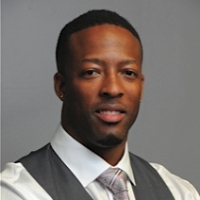Staffordville RICO Act Lawyer, Connecticut
Sponsored Law Firm
-
 x
x

Click For More Info:
-
Andrew M Amendola, Attorney at Law
591 Thompson Avenue East Haven, CT 06512» view mapAccident & Injury, Criminal, Estate, Real Estate Where Every Client Matters
Let Andrew M Amendola, Attorney at Law handle all your legal needs today@
800-942-4780
Not enough matches for Staffordville RICO Act lawyer.
Below are all Staffordville Criminal lawyers.
Donald Edwood Howard
Donald is orginally from Chicago, Illinois. He is 2003 graduate of Mississippi State University (MSU). He received his Masters in Public Policy Admini... (more)
John M. Loconsolo
✓ VERIFIEDJohn M. Loconsolo is a practicing lawyer in the state of Connecticut handling personal injury, criminal, family law, and estate cases.
Ryan Patrick Barry
✓ VERIFIEDRyan P. Barry received his B.A., with honors, from the University of Connecticut and his J.D. from the University of Connecticut School of Law. During... (more)
John F. O'Brien
✓ VERIFIEDAttorney John F. O’Brien has over 30 years of experience as a criminal defense lawyer. We’ve been protecting people’s rights in Hartford, CT sin... (more)
Steven Ira Melocowsky
✓ VERIFIEDSteven I. Melocowsky is a founder of Melocowsky and Melocowsky. He provides legal commentary for local television stations such as FOX Ct News and WFS... (more)
FREE CONSULTATION
CONTACTJason L. McCoy
FREE CONSULTATION
CONTACTFREE CONSULTATION
CONTACT Andrew Amendola East Haven, CT
Andrew Amendola East Haven, CT AboutAndrew M Amendola, Attorney at Law
AboutAndrew M Amendola, Attorney at Law





